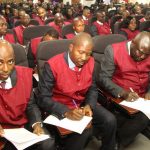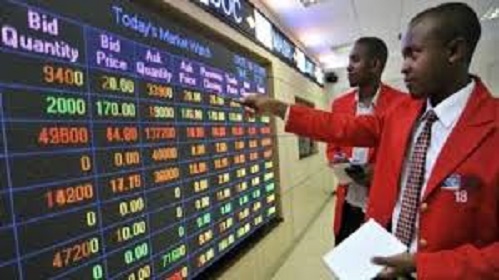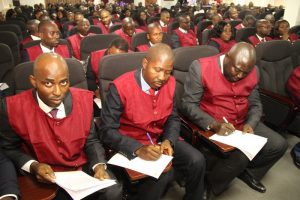
• 15 States Earn Below N1bn IGR, Three Get less Than N300m
Vice President Yemi Osinbajo, on Monday in Abuja said Nigeria must steer clear of the pitfalls that threw its economy into five consecutive quarters of negative growth, otherwise called recession, both now and in the future.
Addressing participants at the legislative economic summit, ahead of the presentation of the 2018 annual budget to the National Assembly by President Muhammadu Buhari, Osinbajo lamented the recurrent delay in presentation, consideration, approval and ascent of the budget, a reason for which the economy is at a stand-still for most of the fiscal year.
Speaking on the theme: “Legislative framework for economic recovery and sustainable development,” the Vice President warned: “No developing economy can afford the luxury of prolonged executive/legislative wrangling over the budget. Developed economies with strong and independent private sectors may be able to cope, but Nigeria simply cannot.
“Budgetary delay in a situation of national economic emergency, and the hardship encountered by so many, is simply wrong and unacceptable. Neither the executive nor the legislature can excuse itself. It is wrong for us to hold up the budget for that long. The delays of course, will ensure that money will not flow into the economy, and that capital projects will not be done.”
Another reason Nigeria cannot afford another recession now or in the future, he continued is the fact that the nation’s population is growing at the rate of 2.6% yearly and can only create jobs and feed her people if the economy grows at least double or even triple that figure.
Continuing, Osinbajo also told participants that “by 2050, we will have the fourth largest population in the world. Over 60% of that population will be young men and women who will need education, jobs and a future for their families.
“There is no society yet on earth that has had that size of population and did not have the technology, educational facilities and other infrastructure to sustain it. The cost of being the first such nation will be too grave to bear,” he stressed.
The obligation that history and providence has thrust upon the three arms of government today, he continued, “is to honestly do all we can to ensure that the future of our people is secure and prosperous. We must not walk this path of recession again.”
Osinbajo spoke of government’s current efforts at diversifying the economy from oil, with the huge resources deployed in the agric sector to ensure that Nigeria moves towards food sustainability. Through the Anchor Borrowers’ programme, for example, he said “productivity in the agricultural sector is at an all-time high. Rice imports have dropped by 70%. And we are fast becoming one of the largest producers of paddy rice in the world. Now we are producing about 7metric ton of paddy rice.”
He also listed various private sector investments in agriculture across the country that would ensure that agric contributes more to GDP, even without relegating the oil and gas resources, as well as electricity, which remains a major priority for the Federal Government.
“It seems to have almost gone unnoticed, that our discussion about power generation has gone from talking about 4000 MW to 7000MW, alongside an increase in transmission capacity.”
He further lamented that the over reliance on oil has resulted to a complete dependence by the federal and state governments on the monthly federal allocation. This is why, he continued, most states today are able to generate less than N1bn monthly internally, just as 15 of them “earn less than N500m a month and about three states earn less than N300m a month… Of course, these are outrageously low earnings from taxation.”
He recalled that in the first republic and before the discovery of oil, the three regions depended on agriculture and taxes, with the West building the tallest building in Africa, the first television station in Africa, hundreds of miles of roads, farm settlements and industrial estates, with proceeds of cocoa export.
“The same territory and more people are available today. So there is absolutely no reason we can’t ramp up taxes, but federal and state taxes.
“Lagos, Rivers and Ogun States have shown what is possible with effective taxation and promotion of industry. Lagos generates more revenues now than 31 States put together. The revolution started in 2004 when President Obasanjo seized the local government funds of Lagos State.
“With almost 40% loss of income from FAAC Lagos begun an aggressive reform of its tax system. The results is what we see today, that the State can survive without any recourse to Federal allocation.
“Rivers States earns roughly N85bn annually, Ogun State earns N72bn. Ogun State is somewhat interesting because, unlike Rivers State which has a captive market of oil companies, Ogun State has had to aggressively attract industry and use its strategic proximity to Lagos to offer a cheaper deal to investors. So it has been able to ramp up its taxes.
“I think that taxes are so crucial, collecting taxes, VAT, income taxes and corporation taxes will be crucial as we increase our revenues.”














